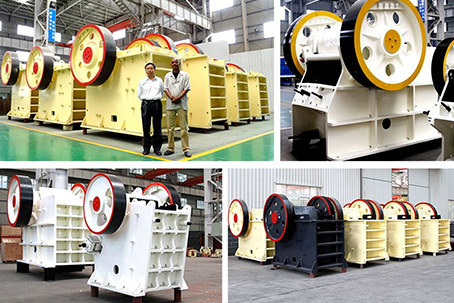


In recent years, North Korea has embarked on a significant journey towards modernization and self-reliance. One of the lesser-discussed yet crucial aspects of this transformation is the nation's approach to managing mineral resources, notably through the innovative use of construction rubbish crushers. This technology, while seemingly modest, has had profound implications for North Korea's infrastructure development, environmental sustainability, and economic growth.
The Challenge of Construction Waste
Construction waste, often referred to as construction rubble or debris, is an inevitable byproduct of building activities. Traditionally, North Korea faced significant challenges in managing this waste. The lack of efficient waste management systems led to the accumulation of large quantities of debris in urban areas, posing environmental hazards and impeding further development projects.
Introduction of Construction Rubbish Crushers
Recognizing these challenges, North Korea began to incorporate advanced construction rubbish crushers into its waste management strategies. These machines are designed to break down concrete, brick, stone, and other construction materials into reusable aggregates. The adoption of this technology marked a turning point in how the country approached construction waste.
Economic Benefits
1. Cost Reduction: By recycling construction debris into usable materials, North Korea significantly reduced the costs associated with transporting and disposing of waste. Additionally, the need for new raw materials decreased, leading to substantial savings in procurement expenses.
2. Job Creation: The implementation and maintenance of construction rubbish crushers created new job opportunities. Workers trained in operating and maintaining these machines contributed to the local economy, fostering employment in an otherwise challenging economic environment.
3. Boost to Infrastructure Projects: The availability of recycled aggregates facilitated continuous and cost-effective construction projects. Roads, bridges, and buildings could be constructed or repaired more efficiently, contributing to the country's infrastructural growth.
Environmental Impact
1. Waste Reduction: The most immediate environmental benefit was the reduction in landfill usage. Less waste meant fewer environmental pollutants, mitigating soil and water contamination risks.

2. Energy Efficiency: Producing new materials from scratch typically requires considerable energy. By recycling construction debris, North Korea conserved energy, aligning with global sustainability goals and reducing its carbon footprint.
3. Enhanced Urban Planning: With effective waste management systems in place, urban planning became more streamlined. Cities experienced less clutter and more organized waste disposal, enhancing overall living conditions for residents.
Technological Advancements and Innovations
North Korea's investment in construction rubbish crushers spurred technological advancements within the country. Engineers and scientists developed more efficient models tailored to the specific needs of North Korean construction sites. Innovations included mobile crushers that could be transported easily to different locations, increasing flexibility and efficiency in waste management operations.
Sociopolitical Implications
The integration of construction rubbish crushers also had sociopolitical ramifications. The successful management of construction waste showcased the government's commitment to modernization and self-sufficiency. It bolstered public confidence in the state's ability to address practical issues affecting daily life, thereby strengthening social stability.
Future Prospects
Looking ahead, North Korea aims to further refine its waste management practices. Plans include expanding the use of construction rubbish crushers to rural areas and integrating them with broader waste recycling programs. Collaborations with international experts in sustainable technologies are also on the horizon, promising to bring even more advanced solutions to the country.
Conclusion
The impact of construction rubbish crushers in North Korea extends far beyond mere waste management. They represent a critical component of the nation's broader strategy towards modernization, environmental stewardship, and economic resilience. As North Korea continues to innovate and adapt, the lessons learned from this initiative may offer valuable insights for other nations facing similar challenges in sustainable development.